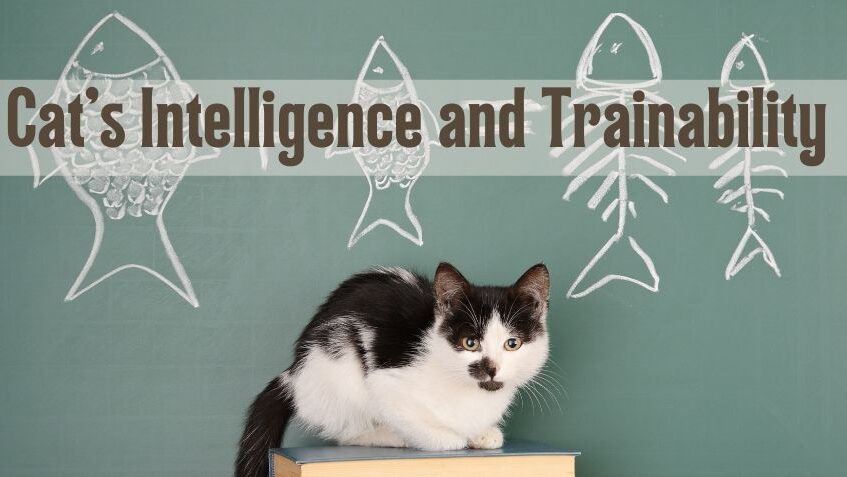Cat’s Intelligence and Trainability
Cats are known for their intelligence, although it may not always be as apparent as in some dog breeds. Their intelligence often manifests in different ways, and understanding their cognitive abilities can help with training and providing mental stimulation. Here’s an overview of a cat’s intelligence and trainability:
Problem Solving:
Cats have problem-solving abilities. They can figure out how to open doors, access food, or reach a favorite toy. Providing puzzle toys or treat-dispensing toys can engage their problem-solving skills.
Memory:
Cats have good long-term memories. They can remember routines, locations of favorite spots, and the people who care for them. This memory can be used to train them, as they can learn cues and commands.
Communication:
Cats are skilled communicators. They use vocalizations, body language, and facial expressions to convey their needs and feelings. You can train them to respond to certain vocal cues, like their name or specific commands.
Trainability:
While cats are trainable, they have their unique personalities and motivations. Positive reinforcement, using treats or praise, is the most effective method for training cats. Training should be short, frequent sessions to keep their interest and attention.
Litter Box Training:
Most cats are naturally inclined to use a litter box. Training them to do so is usually a straightforward process. If you have a kitten, provide a litter box with low sides and place them in it after meals or when they show signs of needing to eliminate.
Basic Commands:
Cats can learn basic commands like “sit,” “stay,” and “come” through consistent training and rewards. Keep training sessions short and positive, and use their favorite treats as rewards.
Clicker Training:
Clicker training is a popular method for training cats. It involves using a clicker to mark desired behaviors, followed by a treat. This method can be effective for teaching tricks and commands.
Socialization:
Early socialization is crucial for kittens. Exposing them to various people, animals, and experiences helps them become well-adjusted adults. Well-socialized cats tend to be more adaptable and less fearful.
Interactive Play:
Interactive play sessions with toys like feather wands and laser pointers can engage a cat’s intelligence and physical skills. Play is a form of mental stimulation and can help prevent behavioral issues.
Patience and Persistence:
Cats may not respond immediately to training, and some individuals may be less interested in learning tricks than others. Patience and persistence are key when working with cats.
Remember that each cat is unique, and their level of intelligence and trainability can vary. Some cats may excel in certain areas, while others may have different strengths. Understanding your cat’s individual personality and preferences is essential for successful training. Always prioritize positive reinforcement, be patient, and make training sessions enjoyable for your feline friend.
You may also visit – https://www.facebook.com/angkopparasahayop





